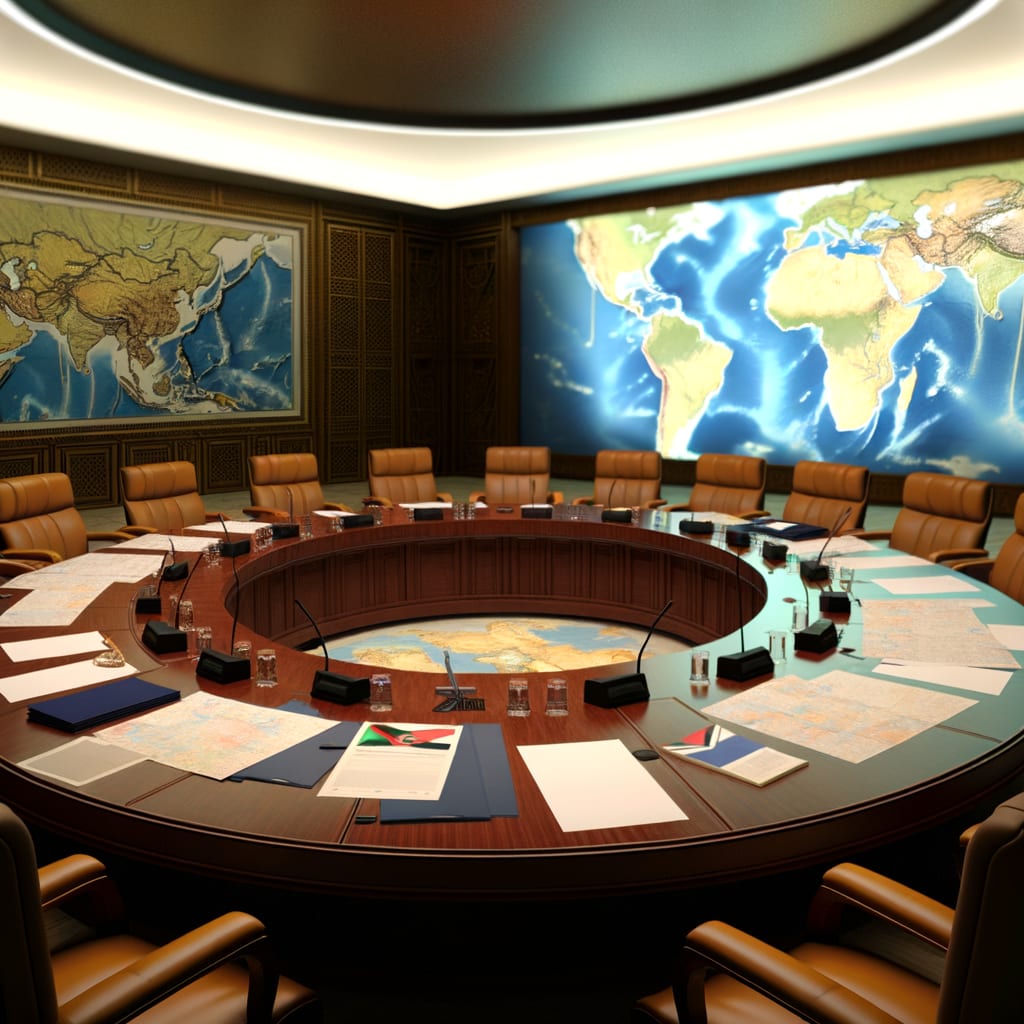Arab and Muslim States Seek Review of Relations with Israel Following Attack on Qatar
Arab and Muslim nations, led by the Gulf states, have called for a comprehensive review of their diplomatic and economic relations with Israel, following the latter's unprecedented airstrikes on Qatar targeting the Hamas political bureau. The calls were made at an emergency summit held in Doha, Qatar, on Monday, which was convened in response to Israel's surprising escalation of regional tensions.
Background
The air raids on Qatar, a key mediator in global conflicts, marked a significant shift in Israel's regional war approach, pulling the nation directly into the conflict. Israeli Prime Minister Benjamin Netanyahu had previously warned Qatar to expel Hamas officials or face consequences. The strikes resulted in the death of six people, including a Qatari security officer, but left the Hamas leadership unscathed.
Key Developments
In a joint communiqué released after the summit, the Arab and Muslim states expressed their complete and absolute rejection
of Israel's threats to Qatar and the wider Arab and Muslim world. The participants issued a categorical rejection
of any attempts to justify the kind of attack seen in Qatar, stating it aimed to thwart the serious efforts to reach a political solution that ends the occupation
.
The summit participants also tasked the member states of the Organization of Islamic Cooperation (OIC) with taking all possible diplomatic and economic measures against Israel. The communiqué warned that Israel's brutal aggression
threatened efforts towards normalising relations between the Arab states and Israel.
International Reactions and Implications
The United Arab Emirates (UAE) condemned Netanyahu’s “hostile remarks” against Qatar, stating that an attack on one Gulf state would be considered an attack on the region’s collective security system. The Gulf Cooperation Council (GCC), following the emergency summit, called on the Trump administration to use its leverage to influence Israel to cease such actions.
The attack on Qatar has also drawn a rare rebuke from U.S. President Donald Trump, who said the decision does not advance Israel or America’s goals
. He revealed that the U.S. had informed Qatar of the attack too late to prevent it, a claim that Qatar has denied.
Conclusion
The Israeli attack on Qatar has sparked widespread anger and condemnation, with the GCC moving towards the activation of a joint defense mechanism that views an attack on one member state as an attack on all. As Arab and Muslim states unite in their condemnation of Israel's actions, it remains to be seen how this will impact the diplomatic and economic relations with Israel in the coming days.

